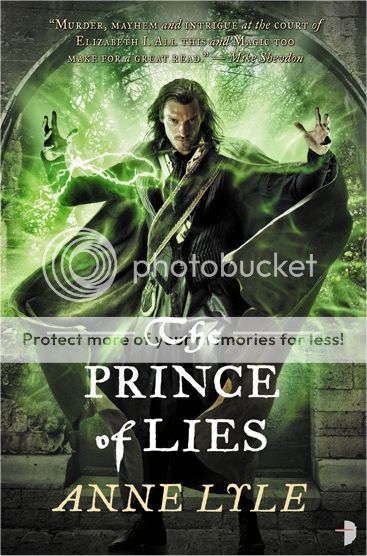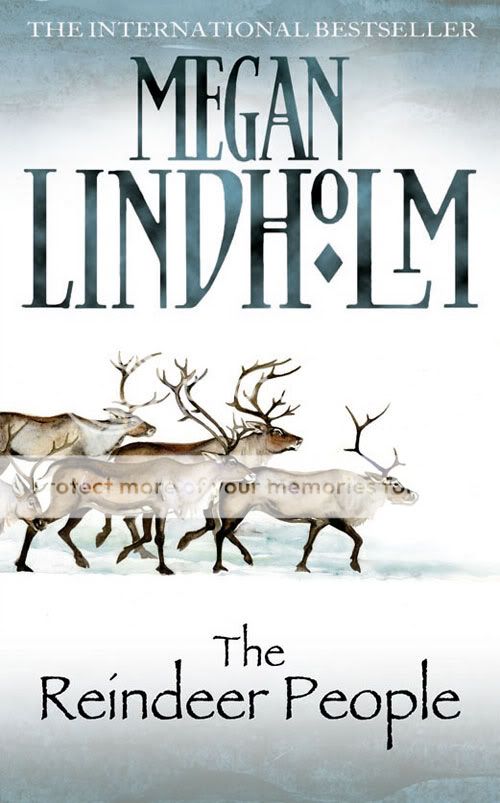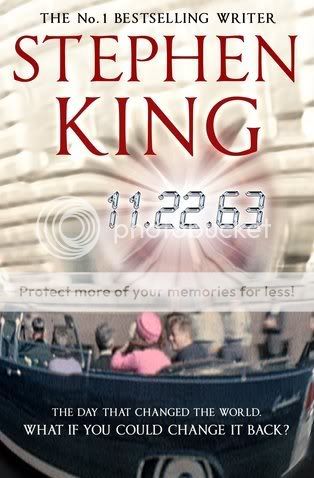Cover by Larry Rostant
THE PRINCE OF LIES
NIGHT'S MASQUE VOL. III
BY
ANNE LYLE
ISBN: 978-0-85766-281-1
Pages:
Publisher: Angry Robot Books
Published: 29 October 2013
On the cover:
(From the publisher's website)
Elizabethan spy Mal Catlyn has everything he ever wanted – his twin brother Sandy restored to health, his family estate reclaimed and a son to inherit it – but his work is far from over. The renegade skraylings, the guisers, are still plotting – their leader, Jathekkil, has reincarnated as the young Prince Henry Tudor. But while he is still young, Mal has a slim chance of eliminating his enemies whilst they are at their weakest.
With Sandy’s help, Mal learns to harness his own magic in the fight against the guisers, but it may be too late to save England. Schemes set in motion decades ago are at last coming to fruition, and the barrier between the dreamlands and the waking world is wearing thin…
This is the last book in a trilogy, so it's not really an ideal starting point. If you are completely new to the Night's Masque books, I suggest you start with The Alchemist of Souls (review).
After going abroad in the previous volume, we are back in familiar territory this time; London at the time of Will Shakespeare. A minor supporting character here, but a name that may be familiar to some readers. The Bard isn't the only historical person to make an appearance, there's also some other names that will be familiar to those who have picked up a history book.
As before the historical backdrop is a major strength of Lyle's. This is in my opinion foremost Alternate History of the kind that can be easily mistaken for Historical Fiction. (If you have a friend who likes Historical Fiction who you want to try SFF, I suggest getting them started on the Night's Masque books.) Those who have read this blog before will know that I like history, and that for me a solid historical background is a great plus for me in a novel.
Lyle is almost a little to good at it. There were times I wanted to look up some of the character's true history, only for my brain to catch a moment later that they are products of Lyle's imagination. If you find Tudor courtly intrigue an interesting basis for fiction, you'll get plenty of that here. Just not from our historical timeline.
There's action and suspense in this story pretty much from the beginning. Apart from a very well handled few chapters that gets us up to date there's not any passages in this novel that lack anything happening. The pacing is reminiscent of an Action Thriller, and that works very well. Well, unless you really should be going to sleep. I got so carried away by this story that I had to finish the book, it was past 5 am when I finally lay down to sleep. But let's face it, that is a huge compliment to Lyle's storytelling ability. This is a book it's really hard to put down.
I mentioned courtly intrigue before, and parts of this story takes place in the middle of the royal court of England. Maliverny Catlyn has certainly circled such places before, but this time he's taken much closer to the centre, and that adds a lot to the stakes this time around. Not that what has happened in the two previous volumes has seemed inconsequential, but now we get to really see what the prize in the game that is being played is all about.
Lyle does keep the tension high throughout this novel. Once the reader knows who the players really are, it also becomes clear that the outcome is in doubt. That feeling does not let up. It isn't until the final few pages that you get a resolution...of sorts. And that's the only thing I can really say didn't sit perfectly with me in this novel. I am still ambivalent about the ending. It is by no means bad, and it brings the story of this trilogy to a satisfying end. But there's a hint of more here, and I know Lyle is working on something else for now. So I can't really decide if it's teasing to hint at more, or keeping our hopes -as readers- up that we will be able to return at some point to this excellent world. (I wouldn't mind a short story now and then.)
Before I finish off this review I need to mention the characters, they are an excellent troupe. Mal is of course great as usual, and Lyle manages to give him even more depth than previously. Coby again gets to shine, and show off that she can handle herself in any situation that is thrown at her.
There's other characters in here too, and they by no means become cardboard cutouts. The whole cast here not only supports the story, they have an integral part in it. Even the aforementioned Bard is more than a throwaway reference, he has an actual function in the story.
As the third book in a trilogy goes, this is an excellent one. I mentioned the only point I had problems with above, but that is really a non-issue. Whether you like Alternate History, Historical Fantasy, or Historical Fiction there is plenty to like here.
Lyle has given me a great three volume journey through an excellent world that is just slightly skewed from the one we live in. I can state without a doubt that the ~1,500 pages of reading have been very much worth it, and I will not hesitate to encourage others to start on it.
NOTE: I got an e-ARC of this novel from the publisher/NetGalley.
LINKS: Anne Lyle Angry Robot Books







